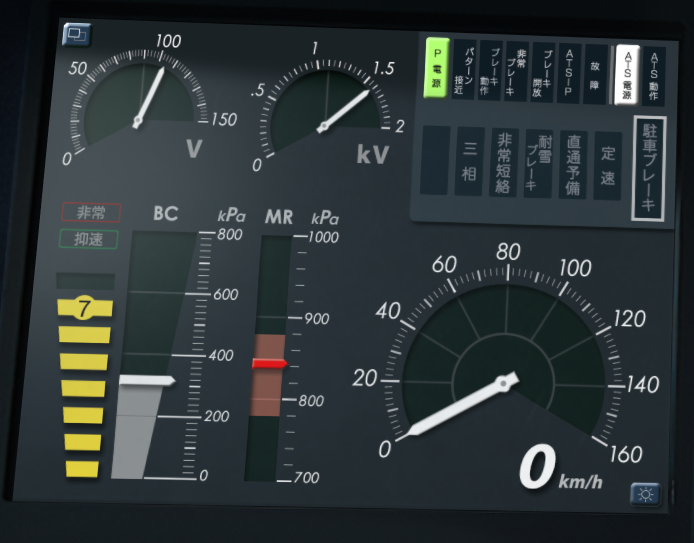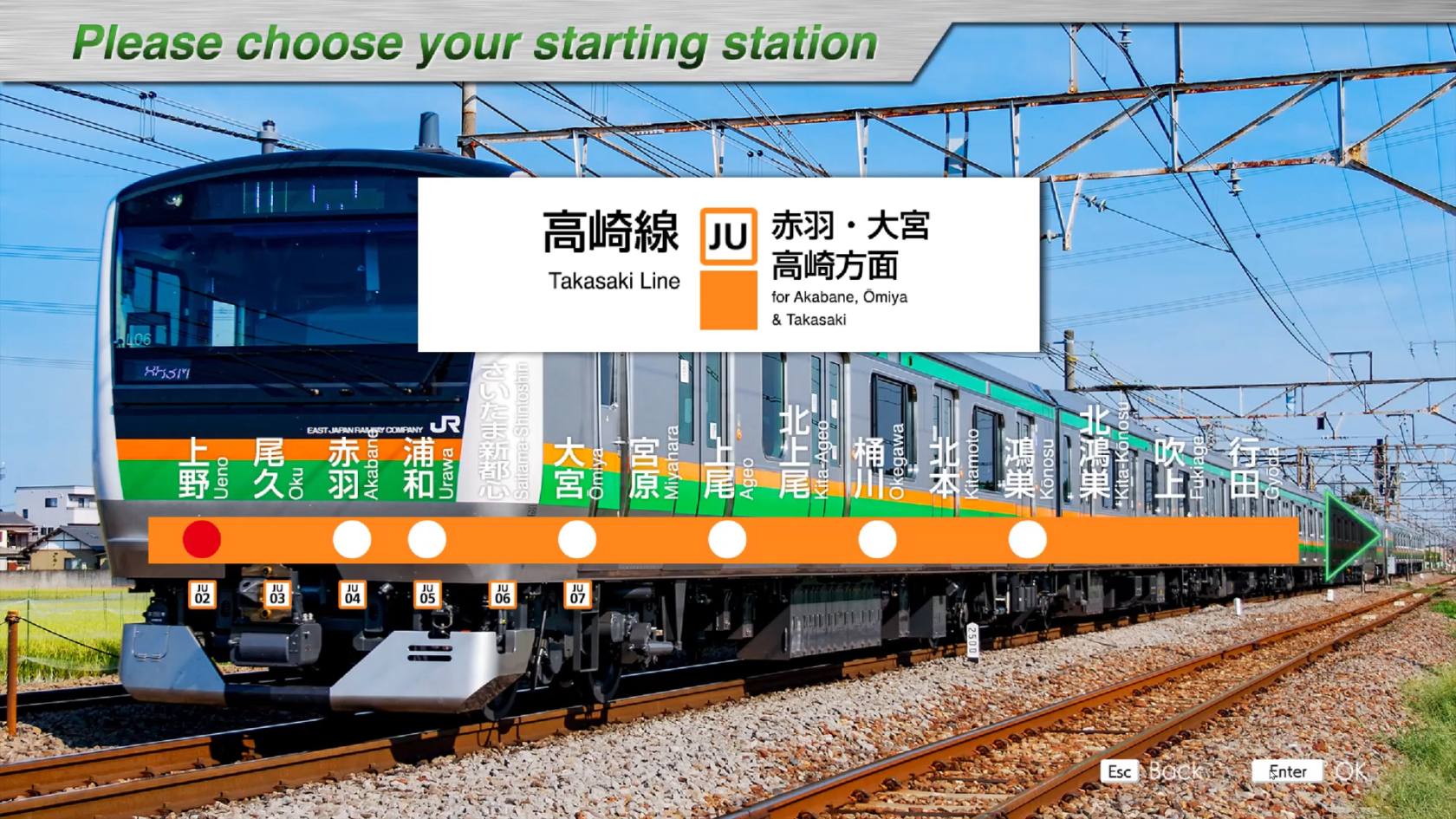Takasaki Line
Introducing
The Takasaki Line is a 74.7 km long line connecting Omiya Station in Saitama City, Saitama Prefecture to Takasaki Station in Takasaki City, Gunma Prefecture. This DLC includes the Tohoku Main Line section between Ueno and Omiya stations, for a total length of 101.4 km.
The line has a relatively long history among Japanese railroads, with its predecessor, Nippon Railway Company, starting operations between Ueno Station and Kumagaya Station in 1883. The following year, in 1884, the line was extended to Takasaki Station and opened to full service. It was not until later, in 1909, that the line was officially named the "Takasaki Line".
Until the opening of the Joetsu Shinkansen in 1982, the Takasaki Line was the main transportation link between the Tokyo metropolitan area and the Niigata and Hokuriku regions, with many limited express and sleeper trains operating on the line. Currently, most of the long-distance transportation role has been handed over to the parallel Joetsu Shinkansen, and as of 2024, only "Akagi Limited Express" and "Kusatsu-Shima Limited Express" trains regularly operate on the Takasaki Line as limited express trains.
The Takasaki Line has been used as a key interregional transportation line for commuting to work and school, etc. In 2001, the Shonan-Shinjuku Line started service directly to the Tokaido Line via Ikebukuro and Shinjuku Stations, and in 2015, the Ueno-Tokyo Line started service directly to the Tokaido Line via Tokyo and Shinagawa Stations, allowing passengers to travel between the northern Kanto region and Kanagawa Prefecture without changing trains. The new line allows passengers to travel between northern Kanto and Kanagawa Prefecture without having to change trains.
On the way from Ueno Station to Omiya Station, the line runs parallel to the Keihin-Tohoku Line and the Shonan-Shinjuku Line, and continues through the Tokyo bedroom community. After leaving Omiya Station, fields along the line become conspicuous near Konosu Station, and near Fukaya Station, you can see the fields of "Fukaya Negi" green onions, which are famous throughout Japan. We hope you will enjoy this DLC as you ride along the Takasaki Line at speeds of up to 110 km/h while gazing at the ever-changing scenery.
Key data
- Total length : 101.4 km
- Number of stations : 24
- Safety system : ATP-P
- Train model : E233-3000 series
- Max speed :
- Ueno ~ Takasaki : 110km/h
- Max speed after signals :
- Reduced speed (green/yellow) : 75 km/h
- Caution (yellow) : 55 km/h
- Speed restriction (yellow/yellow) : 25 km/h
- Routes :
- Ueno ~ Kagohara (829M) : Type "Local" - 10 cars - 17 stations - 67.9 km
- Ueno ~ Takasaki (831M) : Type "Local" - 10 cars - 24 stations - 101.4 km
- Ueno ~ Takasaki (3922E) : Type "Urban" - 10 cars - 16 stations - 101.4 km
Console detail
Apart from the pocket watch and the door-closing indicator in the center of the console, there are 2 displays.
 The first screen (train technical info) displays electrical voltages and various indicators at the top.
The first screen (train technical info) displays electrical voltages and various indicators at the top.
The bottom area contains:
- Brake level and indicators for emergency brake in red (非常) and speed limit in green (抑速)
- Brake cylinder pressure (BC)
- Main air reservoir pressure (MR). Note that if this falls below the red zone (780kPa), the compressor starts up.
- Speed dial.
Here are the translations of the indicators:
|
|
Consult the MON/TIMS/INTEROS screen page for more details about the TIMS screen.
Movie
Soon...
Useful links
Wikipedia : https://en.wikipedia.org/wiki/Takasaki_Line
Driver's guide : https://docs.google.com/spreadsheets/d/1W_fwI9TCSBDaODz087IjQDqcmRBpxKWKpl2GivNPtfA/edit#gid=530325536
Timetables (in japanese) :
- Ueno ~ Kagohara (829M) : https://docs.google.com/spreadsheets/d/1W_fwI9TCSBDaODz087IjQDqcmRBpxKWKpl2GivNPtfA/edit#gid=960964174
- Ueno ~ Takasaki (831M) : https://docs.google.com/spreadsheets/d/1W_fwI9TCSBDaODz087IjQDqcmRBpxKWKpl2GivNPtfA/edit#gid=1393285047
- Ueno ~ Takasaki (3922E) : https://docs.google.com/spreadsheets/d/1W_fwI9TCSBDaODz087IjQDqcmRBpxKWKpl2GivNPtfA/edit#gid=1909004233

